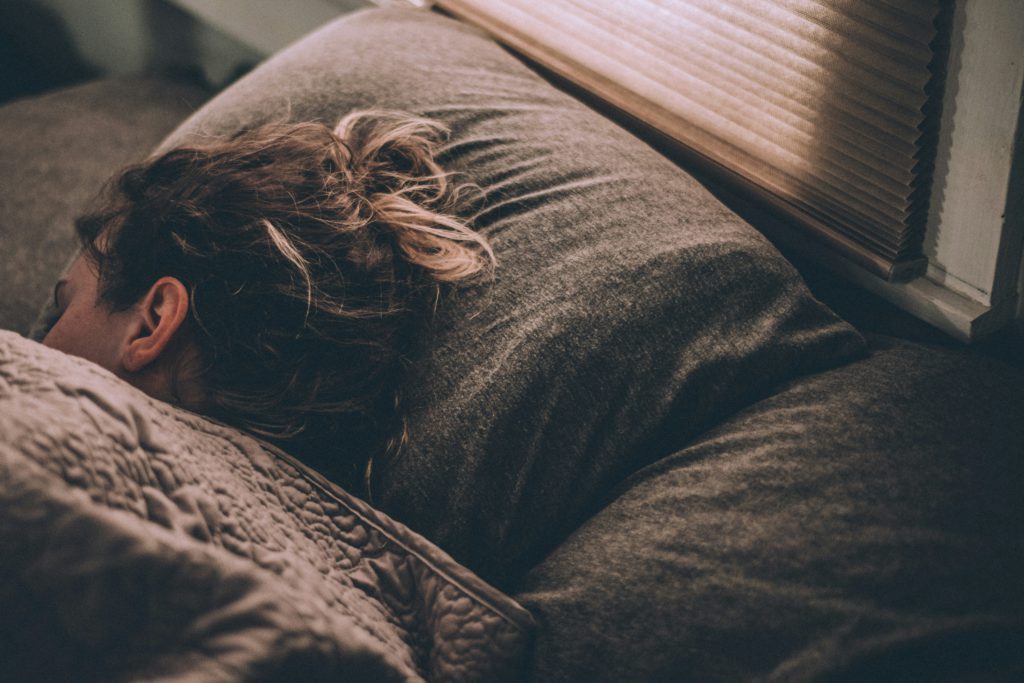Sleep hygiene refers to healthy habits, behaviors and environmental factors that can be adjusted to help you have a good night’s sleep. During sleep, your body is working to support healthy brain function and maintain your physical health. However, 1 in 3 adults report not getting enough sleep or rest each day. Most adults need 7 or more hours of good quality sleep on a regular schedule each night. Getting enough sleep isn’t just about the total hours of sleep – it’s also about the quality of sleep you get so you feel rested when you wake up.
What happens to your body when you don’t get enough quality sleep each night? Research shows that lack of sleep can:
- Change activity in parts of your brain. This may cause issues in solving problems, making decisions and controlling your emotions.
- Cause the person to take longer finishing tasks and make more mistakes.
- Affect the body’s ability to fight off germs and sickness.
- Affect how your body reacts to insulin.
- Increase chances of an auto accident.
- Lead to or worsen depression, anxiety, coronary heart disease, high blood pressure, and obesity.
- Increase risk of stroke.
Good sleep hygiene can help you get a good night’s sleep. Here are some habits that can improve sleep health:

- Be consistent. Go to bed at the same time each night and get up at the same time each morning, including on the weekends. Limit the difference to no more than an hour. Staying up late and sleeping in late on weekends can disrupt your body clock’s sleep-wake rhythm.
- Make sure your bedroom is quiet, dark, relaxing and a comfortable temperature.
- Use the hour before bed for quiet time. Avoid intense exercise and bright artificial light, such as from a TV or computer screen. The light may signal the brain that it’s time to be awake.
- Avoid heavy or large meals within a few hours of bedtime. Having a light snack is okay.
- Avoid nicotine and caffeine, including caffeinated soda, coffee, tea and chocolate. Nicotine and caffeine are stimulants, and both substances can interfere with sleep. The effects of caffeine can last up to 8 hours, so a cup of coffee in the late afternoon can make it hard for you to fall asleep at night.
- Spend time outside every day when possible and be physically active.
- Remove electronic devices, such as TVs, computers and smartphones, from the bedroom. These devices emit blue light that disrupt sleep patterns as it affects when our bodies create melatonin, the hormone that regulates sleep.
Sleep plays a vital role in good health and well-being throughout your life. It’s important to focus on getting a good night’s sleep to be able to take care of yourself and others. If these tips do not work for you, it is recommended that you talk to your doctor.
For additional tips and information, visit:
- Columbia University Department of Psychiatry. (2022, March 16). How sleep deprivation impacts mental health. https://www.columbiapsychiatry.org/news/how-sleep-deprivation-affects-your-mental-health
- Centers for Disease Control and Prevention (n.d.) How does sleep affect your heart health? https://www.cdc.gov/bloodpressure/sleep.htm
- Columbia University Department of Psychiatry. (2022, March 16). How sleep deprivation impacts mental health. https://www.columbiapsychiatry.org/news/how-sleep-deprivation-affects-your-mental-health
- Columbia University Irving Medical Center. (2022, September 27). Sleep is good for your heart. https://www.cuimc.columbia.edu/news/sleep-good-your-heart
- Jansen, E. (2020, March 2). Sleep 101: Why sleep is so important to your health. University of Michigan School of Public Health. https://sph.umich.edu/pursuit/2020posts/why-sleep-is-so-important-to-your-health.html
- Mass General Brigham. (2023, December 4). Sleep and heart health. https://www.massgeneralbrigham.org/en/about/newsroom/articles/sleep-and-heart-health-in-adults
- National Heart, Lung, and Blood Institute. (n.d.). How sleep affects your health. https://www.nhlbi.nih.gov/health/sleep-deprivation/health-effects
- Suni, E. & Vyas, N. (2023, December 8). Mastering sleep hygiene: Your path to quality sleep. Sleep Foundation. https://www.sleepfoundation.org/sleep-hygiene




